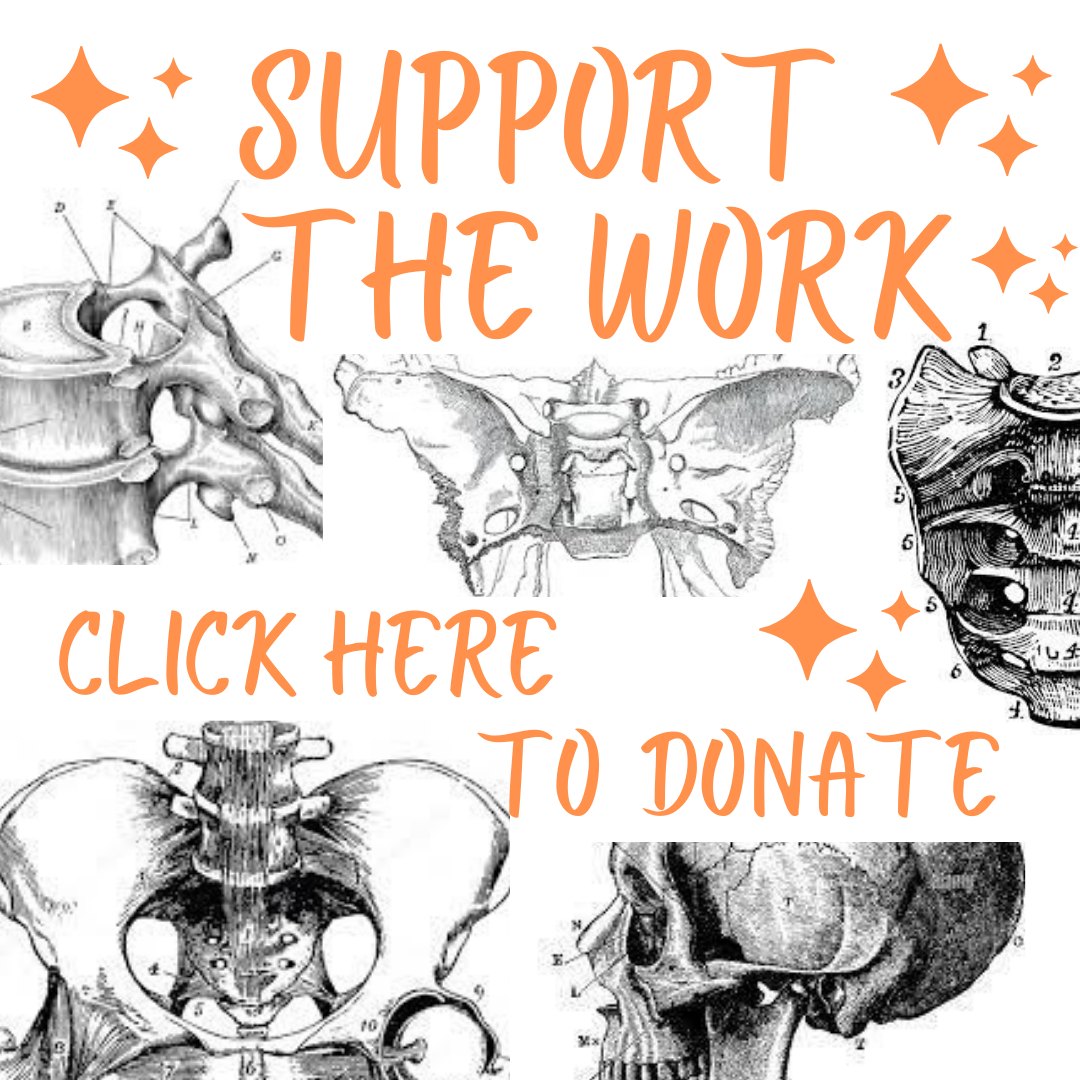|
“Somatics is the field which studies the soma: namely, the body as perceived from within by first-person perception” (Hanna, 1986), in other words, soma is the multitude of sensations that arise through being a body. It’s all the information you feel in yourself as a body in the world. Somatics offers a different perspective than a traditional objective view of “body as machine”. The word somatic highlights the body-mind connection, because at any given moment we are consciously perceiving (mind) our bodies. As a research field, it brings together both current scientific knowledge (anatomy, biology, physiology, neuroscience, bio-mechanics, etc) as well as present experiential knowledge to deepen our understanding of our bodies as dynamically organized and intricately balanced systems.
By focusing on our awareness of our bodies through felt sensation, we can begin to understand our internal reactions and then intentionally choose different responses when appropriate. Whether or not we consciously notice our interior worlds, we are alive with bodily communication: we are constantly responding to stimuli, creating sensations, responding with movement, and creating more sensations and thus the patterns that make up who we are. By bringing awareness to our sensations, we begin to speak the language of the soma and allow for conscious change. We can notice when we might normally react with frustration and choose to respond differently- to take a deep breath and say something else. In some ways, it seems so simple. Notice what you feel and allow that to influence your choices. In this self-regulating system loop, we can move towards health. But as we begin to understand the nature and prevalence of trauma, combined with the pace and demands of life, it becomes clear that maintaining this body connection as a practice of resilience is increasingly hard. In traumatic responses, parts of our brain go off-line, making sensory input either too extreme or unavailable because of numbing. It’s easy to lose touch with our ability to listen, and sometimes what’s there is so painful, our psyches form a protective barrier against feeling it, thus numbing out those sensations. As more folks engage with the complexities of our contemporary lives, and the greater world at large, more and more people are turning to our bodily intelligence as a keystone for making definitive and profound change. Folks from all walks of life are applying the framework of somatic intelligence into psychology, therapy, movement and rehabilitation practices, trauma treatment, educational reform, health and wellness practices, interpersonal conflict, community building, and social justice reform. By incorporating novel movement patterns and ways of listening, somatic practices can help reset the system by allowing for new inputs and outputs. Developing somatic intelligence builds resilience in our physical, emotional and relational capacities, allowing for the possibility of change. About The Everything Space: The Everything Space is a collaboratively run embodiment studio providing skillful and accessible somatic education, curated by Abbi Jaffe and Amanda Franz. The Everything Space offers classes, organizational somatic consultation and implementation, private sessions, performances and creative space to create opportunities to listen deeply to the wisdom of the body, express grief and celebration, and rewild ourselves. Find out more at theeverythingspace.com or find them on Facebook at The Everything Space.
2 Comments
|
AuthorAmanda Franz and Archives
April 2024
Categories |
- WORK WITH US
- Classes/events
-
Garden
- Sign up HERE for Garden Community Work Days
- Positionality Statement
-
Our Values
>
- Equitably Inclusive
- Justice work - Food, Environmental, Social, Bodily
- Practicing Community
- Everything is Alive! Everything is Connected!
- Active Practice of Learning
- Deep/Somatic/Embodied Listening and Awareness
- Centering Ancestors
- Healthy Accountability to Commitments and Responsibilities
- Emergent Education
- Garden Vision
- Scopes of Involvement
- Garden Support
- Gratitudes >
- About
- Contact
- Calendar
The Everything Space 15 State Street, 3rd Floor, Suite 303 Montpelier VT 05602 (accessible by elevator)
Unceeded Homeland of the Abenaki People
Unceeded Homeland of the Abenaki People

 RSS Feed
RSS Feed

